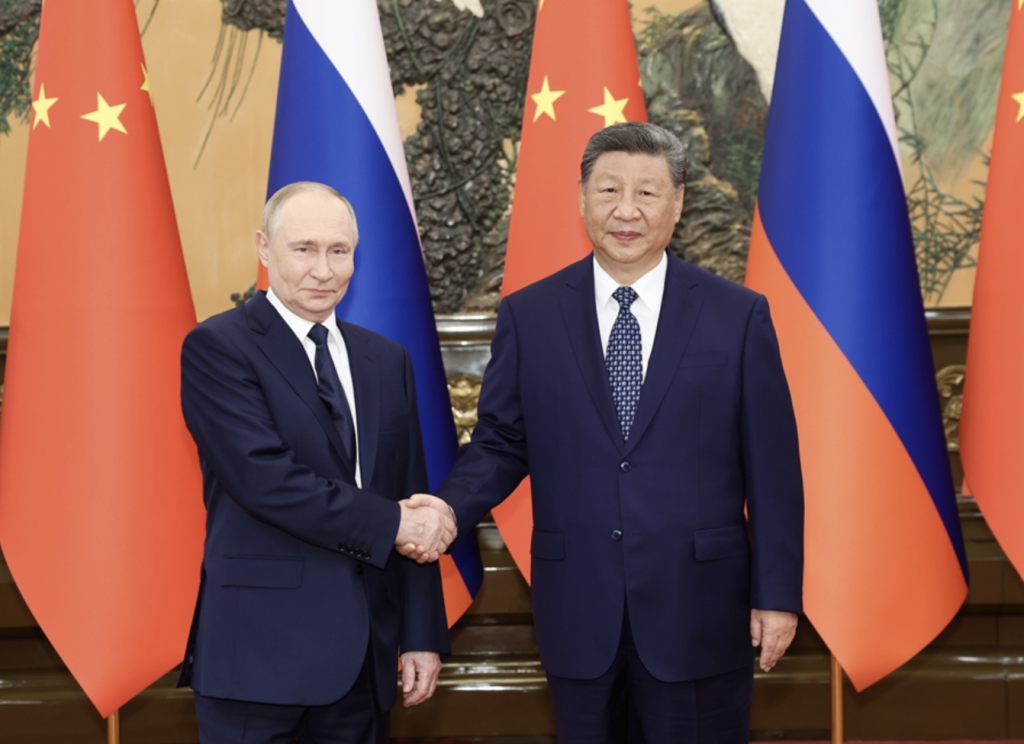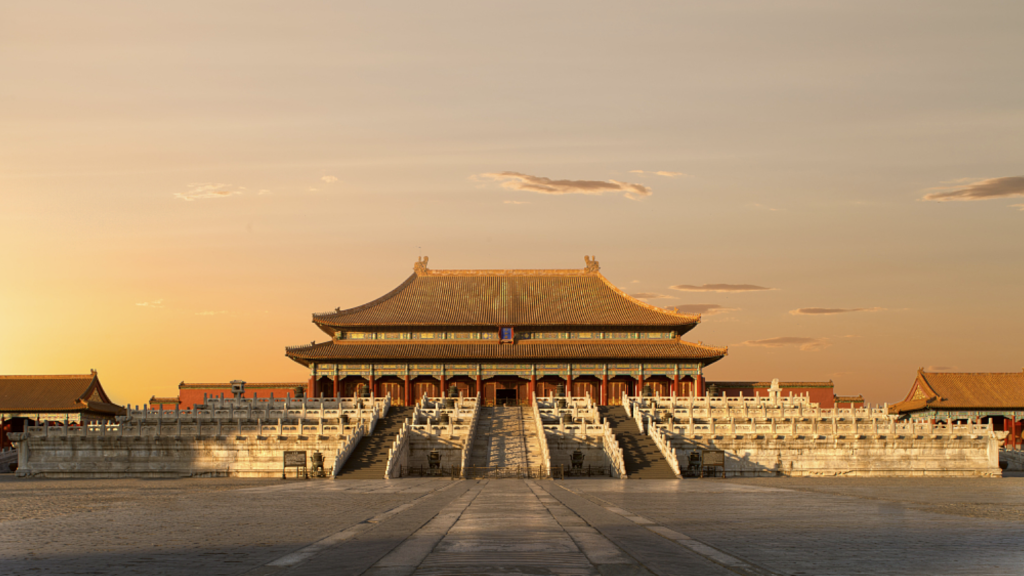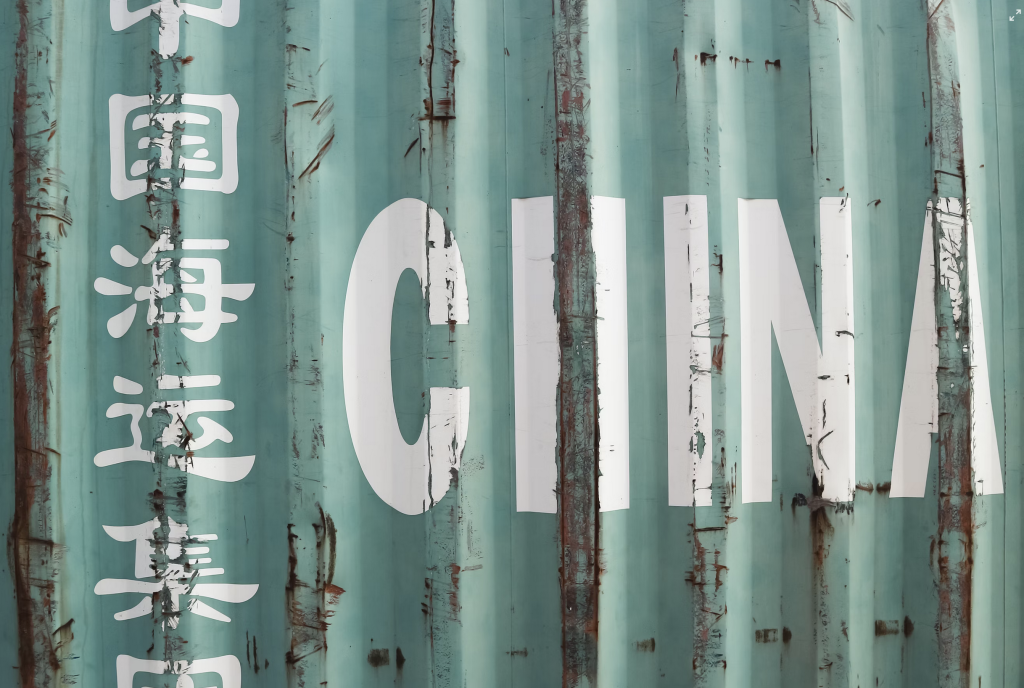A War China Didn’t Fight but Still Lost: Beijing’s Strategic Setback after Ukraine
The U.S. and China’s Next Tech Battleground: Mexico
By Austin Peters.
I am sitting on my patio reading as the sun slowly sets over the Oaxacan valley laid out in front of me. Deep purples and blues stretch across the sky as the grassy mountain tops contrast against the last tinges of orange on the horizon. The city begins to illuminate. The din of evening commotion rises from the pueblo, punctuated by my noisy neighbor who moonlights as a carpenter. In pursuit of a lazy evening of take out and a mindless early 2000’s comedy, I have three options – Uber Eats, Didi Food, and Rappi – each a unicorn with global intentions that represents its home region in the fight over hearts, stomachs, and wallets in Mexico.
Triangular Competition in Mobile Food Delivery
As COVID-19 disrupts business across the globe, now is the time for mobile food delivery companies to jockey for additional market share or re-entrench in key markets. Each of these three food delivery platforms, competing in a highly standardized service industry, has built a unique competitive advantage. Uber commands global brand recognition, an existing user base (especially among tourists), and seemingly infinite access to capital. Didi understands the diverse needs of consumers in developing economies and sees their Chinese-centric business model as replicable in other developing countries, especially those with technological leap-frog potential, such as Mexico. In addition, Didi has appeared as the single most common advertisement in my media consumption since I moved to Oaxaca. Rappi is a Columbian start-up which was purpose-built for the Latin American consumer.
If we look behind the curtain, this Mexican market match-up is especially interesting. All three companies are backed by Softbank’s Vision Fund, the paradigm-shifting US$100 billion investment vehicle that has retooled the technology investment landscape.[1] In addition, Uber owns 15% of Didi which it acquired from selling Uber China to Didi. Ultimately, the intertwined capital structures of these companies raise the concern of a conflict of interest. How can Softbank effectively advise and invest in the mobile food delivery market in Mexico when it holds insider information and financial interests in all three major players?
Only time will tell who will win in Mexico, and there may be more than one winner. Regardless, I believe there are three potential outcomes: (1) the local player fends off foreign competition, (2) the foreign player(s) dominate the market before a local player can scale, or (3) the multiple competitors coexist and battle for marginal market share. All three of these examples have global precedents. In Kenya, the local mobile payments provider M-Pesa controls nearly 100% of the domestic market. In the Mexican ridesharing market, Uber maintains a market share north of 80% and is in a position to block out upstart local competitors. In a diverse country such as India, chat applications face stiff competition because WhatsApp, Facebook Messenger, Skype, Hike, WeChat, and Viber all have significant download rates by Indian mobile phone users. As U.S. and Chinese tech giants continue their search for growth and local entrepreneurs solve problems in their home market, this triangular competition is reappearing across the globe.
Historical Perspectives
Mexico is becoming a battleground for the expanding technology struggle between the United States and China. This is not the first time Mexico has found itself caught between rival powers. During and after the colonial period, Mexico struggled against two encroaching fronts – one the historical colonial European powers and the other the rising rival to its North. Additionally, the annals of history leave a complex and problematic legacy for Mexico, the United States, and China.
As the United States implemented its vision of Manifest Destiny, Mexico paid the price in land. Under President Taft, the United States instigated a war with Mexico, ultimately forcing Mexico to cede large portions of land that are now the Southwest states. In more recent times, the U.S. – Mexico relationship remains fraught with political challenges such as immigration, the war on drugs, and the outsourcing of jobs to Mexico.
From the Chinese perspective, Mexico originally served as a silver supplier and a purchaser of oriental treasures via its fellow Spanish colony, the Philippines. During the Mexican Revolution, Mexican nationalists slaughtered a community of Chinese immigrants in the Torreón Massacre. Under the leadership of President Xi Jinping, the Chinese have shown renewed interest in Mexico and President Xi even visited the country in 2013.
In the context of historical distrust between these three nations, the pragmatic and conciliatory diplomacy of the Chinese leadership stands in stark contrast to the recalcitrant, nationalistic, and isolationist tendencies of the Trump Administration. Furthermore, the interconnectedness of government and business in China as well as the trillions of dollars in U.S. stimulus blur the distinctions between government and companies. Political maneuvering can directly spark economic repercussions. For example, President Trump’s comments about Mexican immigrants and Mexico’s financial responsibility for the proposed border wall ignited anti-American sentiment in Mexico that directly affected American companies. “Social media played a role in spreading these campaigns, with hashtags such as #AdiosStarbucks (“goodbye, Starbucks”) and #AdiosProductosGringos (“goodbye, US products”) gaining traction in 2017.” Looking forward, how should Mexico evaluate and respond to the growing international competition in its technology industry?
Sustainable Development
Historically, Mexico’s important natural resources have been under siege by foreign interests, first with silver mining in the Colonial Period and later with oil in the 20th century. Now, with its developing market and large population, consumer spending and consumer data have become the new export of choice. Mexico should manage this export carefully and understand the double-edged nature of U.S. and Chinese technology investment.
In support of foreign investment, Mexico, and more importantly the Mexican populace, benefit from the rollout of mature technology solutions in the local market. For example, Uber has provided a safe, efficient, and widely available mobility solution to the Mexican people. Although Mexico is now defined by the World Bank as an “upper-middle income country” as measured by per capita Gross National Income in U.S. Dollars, there are still many quality of life improvements to be implemented in Mexico especially with regard to financial inclusion and mobile payments.
In contrast, dissidents of “big tech” view the Mexican market expansion of U.S. and Chinese companies as a new form of neo-liberal colonialization. Undoubtedly, if foreign technology companies profit in the Mexican market, capital gains will flow back to a mainly foreign investor base. If the local startups are able to secure a significant market share or completely fend off foreign competition, Mexico is more likely to cultivate its own tech scene, complete with successful entrepreneurial mentors, a large capital base, and a steady supply of technical talent. Given the drastically improved adoption rates of new technology driven by the pandemic, mobile food delivery platforms’ COVID-19 responses and positioning will shape the Mexican tech ecosystem for years to come.
COVID-19 & Future Development
Pre-pandemic, many would have wagered that the foreign players would have suppressed or purchased the local players in the Mexican food delivery market; however, the pandemic has fundamentally shifted competitive dynamics across this industry in favor of Rappi. For Uber and Didi, the outbreak drew attention away from international expansion and led to a refocusing on home markets and core businesses which were decimated by the decline in leisure and business travel. On the other hand, Rappi’s core market is Latin America, and Rappi focused wholeheartedly on better serving Latin American customers during COVID-19. For example, most Mexicans transact in cash which can accelerate the spread of the virus. This issue was likely much higher priority for Rappi than for Uber and Didi, where their core markets transact via card and mobile respectively. In this ever-evolving business environment, Rappi secured the lion’s share of order growth from the pandemic-induced frenzy in the mobile delivery space, driving an average of 31% month-over-month increases in orders.
I, personally, am rooting for the underdog Rappi and according to a study done by McKinsey Global Institute (MGI), proponents of sustainable development should be rooting for local technology companies as well. MGI identified a primary constraining factor of economic growth and economic equity in Mexico – the missing middle. Mexico is flush with major enterprises (i.e. PEMEX) and supports a long tail of small business; however, middle-market companies, defined by MGI as $10m to $500m in revenue, are missing from this equation. Fast-growth technology companies could quickly scale into the middle-market and provide well-paid middle-class jobs. They also initiate a virtuous cycle that encompasses entrepreneurs, tech talent, and venture capital to compound this economic growth. Additionally, for consumers, the continued competition in the Mexican food delivery market will improve service and decrease prices. Overall, it is hard to deny the benefits of rapid expansion of the local LATAM tech ecosystem.
As I stare at my phone and contemplate from which app to order dinner, I am reminded of the broad implications of this decision. In this three-way campaign for wallet share, I am merely an order number, but this battle will not only shape the future of the standard of living, economic development, and technology industry in Mexico, but also the ability of China to unseat American technological dominance.
Austin Peters is a graduate of Indiana University and has studied Chinese for six years, including stints at Beijing Normal University and Nanjing University.
The views expressed are his own and do not necessarily represent the views of The Carter Center or its associates.
[1] DST Global is invested in both Rappi and Didi.








